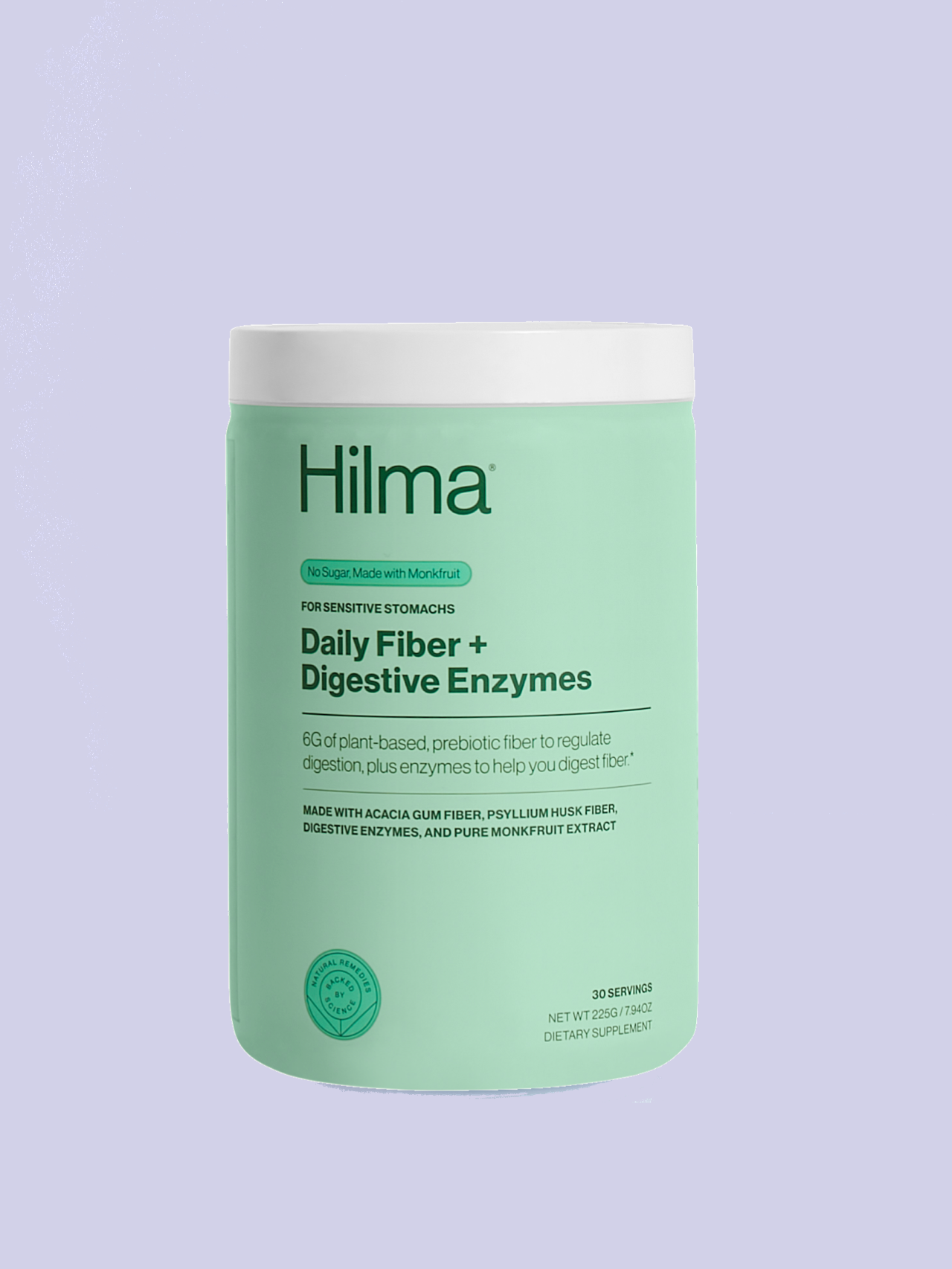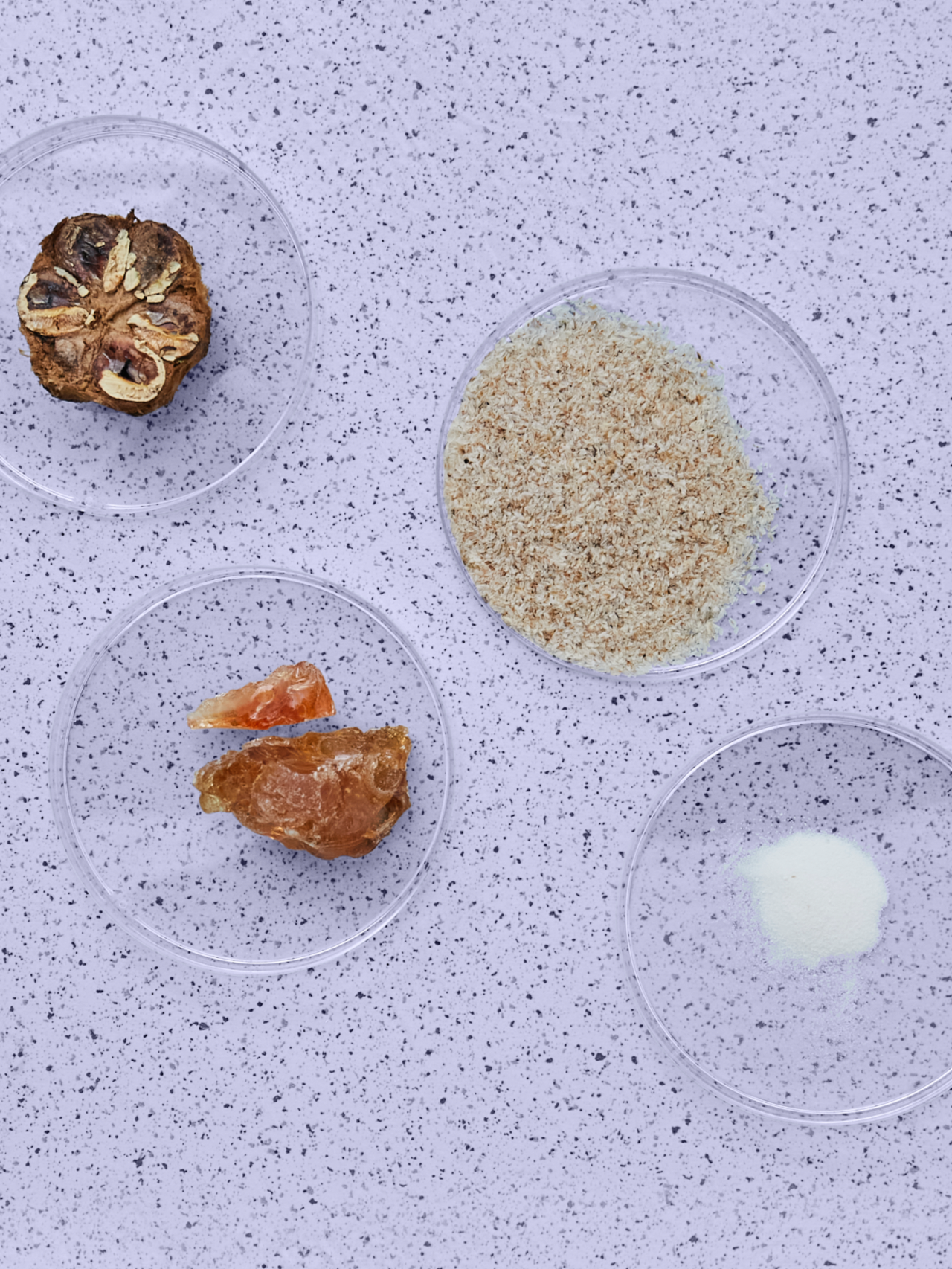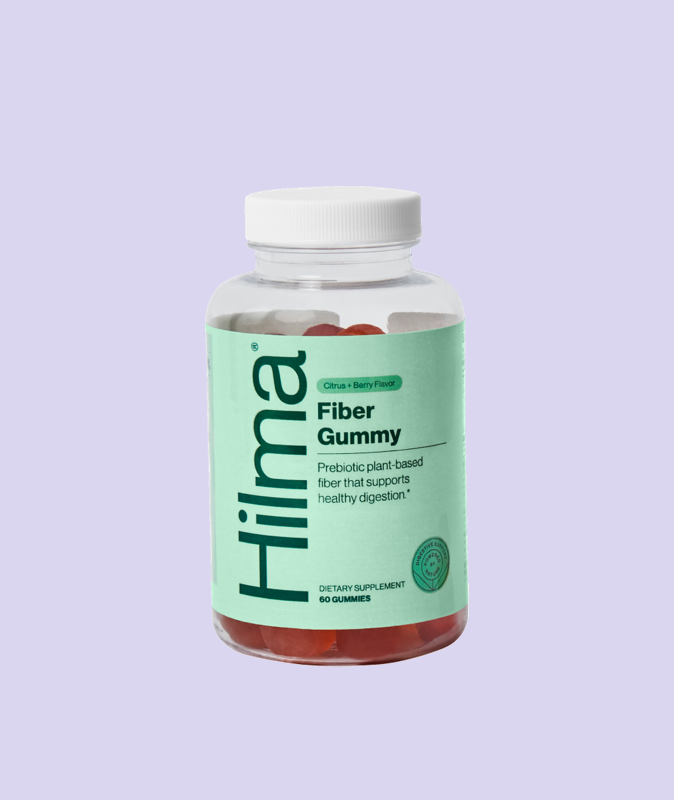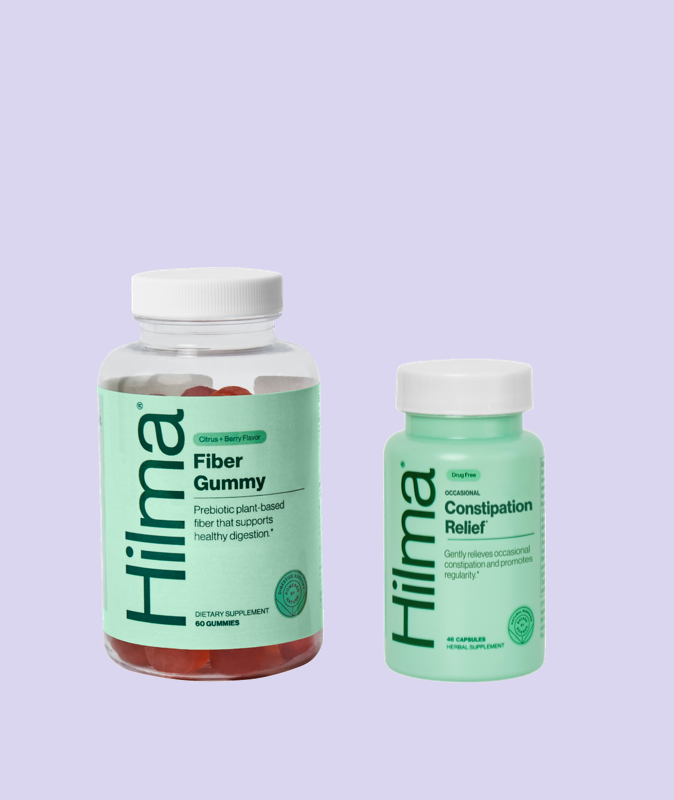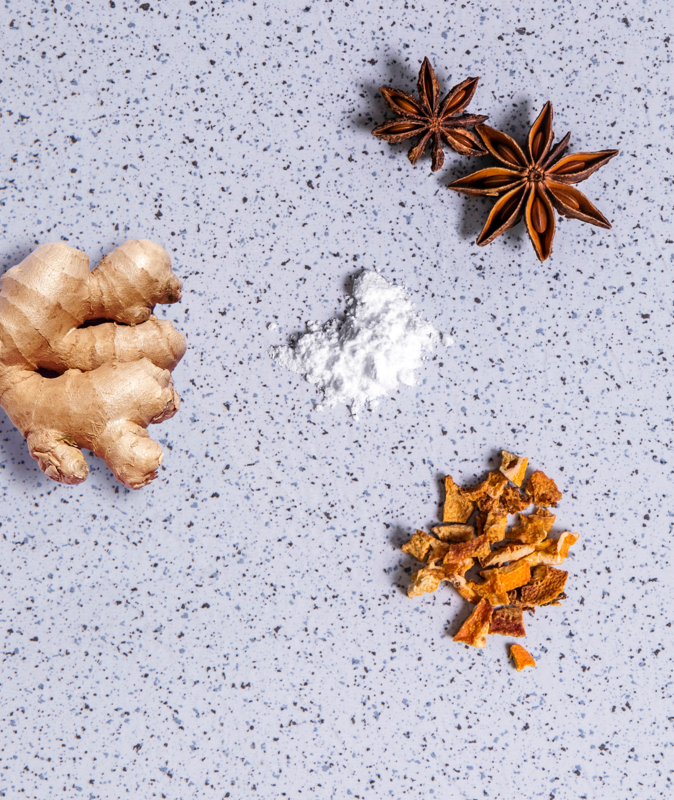
Have you ever paused to ponder what exactly happens to fiber once it enters your body? It's a question worth exploring, as fiber plays a crucial role in maintaining digestive health and overall well-being. Let's delve into the fascinating journey of fiber within the body and uncover how two key types – psyllium husk fiber and acacia gum fiber – impact your health in profound ways.
What is fiber?
Before we dive what happens to fiber once it enters the body, it’s important to understand what fiber is and why it’s so important for your health.
Fiber, also known as dietary fiber or roughage, is a type of carbohydrate found in plant-based foods. Unlike other carbohydrates, such as sugars and starches, fiber cannot be broken down by the human digestive system. Instead, it passes through the digestive tract largely unchanged, providing a range of health benefits. Here are some key reasons why fiber is important for digestive health:
Promotes Regularity: Fiber adds bulk to stool, which helps move waste through the digestive tract more efficiently. This can prevent constipation and promote regular bowel movements.
Prevents Diverticular Disease: Adequate fiber intake can help prevent diverticula, small pouches that can form in the colon wall. High-fiber diets help maintain stool consistency and reduce pressure in the colon, lowering the risk of diverticular disease.
Supports Gut Microbiome: Fiber serves as a prebiotic, providing fuel for beneficial bacteria in the gut. These bacteria ferment fiber to produce short-chain fatty acids, which nourish the cells lining the intestine and support a healthy gut microbiome.
Aids in Weight Management: High-fiber foods are often lower in calories and more filling than low-fiber foods. Consuming fiber-rich foods can help control appetite, prevent overeating, and support weight management efforts.
Lowers Risk of Digestive Disorders: Fiber has been linked to a reduced risk of various digestive disorders, including hemorrhoids, gastroesophageal reflux disease (GERD), and colorectal cancer.
Regulates Blood Sugar Levels: Soluble fiber slows the absorption of sugar into the bloodstream, helping stabilize blood sugar levels. This can be beneficial for individuals with diabetes or insulin resistance.
Lowers Cholesterol Levels: Certain types of fiber, such as soluble fiber found in oats and legumes, can help lower LDL (bad) cholesterol levels by binding to cholesterol and promoting its excretion from the body.
Fiber comes in two main forms: soluble fiber and insoluble fiber. Soluble fiber dissolves in water to form a gel-like substance in the digestive tract, while insoluble fiber does not dissolve and adds bulk to stool.
Some common sources of fiber include fruits, vegetables, whole grains, legumes, nuts, and seeds. Including a variety of fiber-rich foods in your diet is important for maintaining digestive health, promoting regular bowel movements, controlling blood sugar levels, lowering cholesterol levels, and reducing the risk of chronic diseases such as heart disease, diabetes, and certain types of cancer.
Psyllium Husk Fiber
Psyllium husk fiber takes center stage as a predominantly soluble fiber renowned for its gel-forming properties upon hydration. As it travels through your digestive tract, psyllium absorbs water and transforms into a gel-like substance within the intestinal lumen. This gel serves multiple purposes, including softening and bulking stool, which can alleviate constipation and promote regular bowel movements.
But, psyllium husk fiber’s benefits extend beyond mere stool softening. Here are some of the other key benefits of psyllium husk fiber:
Supports Gut Health: Psyllium husk fiber acts as a prebiotic, nourishing beneficial bacteria in the gut. This supports a healthy gut microbiome, which is essential for optimal digestion, immune function, and overall well-being.
Lowers Cholesterol Levels: Studies have shown that psyllium husk fiber can help reduce LDL (bad) cholesterol levels, thereby lowering the risk of heart disease. It works by binding to cholesterol in the digestive tract and promoting its excretion from the body.
Stabilizes Blood Sugar Levels: Soluble fiber, such as that found in psyllium husk fiber, can help stabilize blood sugar levels by slowing down the absorption of glucose into the bloodstream. This can be particularly beneficial for individuals with diabetes or insulin resistance.
Promotes Weight Loss: Psyllium husk fiber can contribute to feelings of fullness and satiety, which may help reduce appetite and calorie intake. Including psyllium husk fiber in your diet can support weight loss or weight management efforts.
Improves Digestive Comfort: Psyllium husk fiber can help alleviate symptoms of digestive discomfort, such as bloating, gas, and abdominal pain. Its gentle bulking action in the digestive tract can promote overall digestive comfort.
May Help with Irritable Bowel Syndrome (IBS): Some individuals with IBS may find relief from symptoms such as diarrhea or constipation by incorporating psyllium husk fiber into their diet. Its ability to regulate bowel movements and support gut health can benefit those with IBS.
Acacia Gum Fiber
On the other hand, acacia gum fiber takes a different approach. This water-soluble fiber dissolves readily in water, forming a solution that is easily digested and absorbed by the body. Unlike psyllium, acacia gum fiber does not form a gel when hydrated, but its soluble nature offers a host of health benefits nonetheless.
Similar to psyllium, acacia gum fiber has been shown to mitigate the post-prandial insulin response and effect glucose spikes after meals. By regulating blood sugar levels, this soluble fiber can be particularly beneficial for individuals seeking to manage conditions like diabetes or insulin resistance. Additionally, both psyllium husk fiber and acacia gum fiber have been linked to improvements in lipid profiles, including reductions in serum cholesterol levels.
Studies have shown that acacia gum fiber may be gentler for individuals with sensitive stomachs compared to other types of fiber. One reason for why it may be well-tolerated by those with sensitive stomachs is its gentle action in the digestive tract. Unlike some other fibers that can be fermentable and may cause gas or bloating in some individuals, acacia gum fiber is less likely to cause these digestive discomforts. Its soluble nature allows it to dissolve readily in water, forming a solution that is easily digested and absorbed by the body.
The overarching impact of fiber is clear: fiber contributes to improved cardiovascular health and overall well-being. By incorporating fiber-rich foods or supplements like our Daily Fiber + Digestive Enzymes or Fiber Gummies into your daily regimen, you nourish your body with the essential nutrients it needs to thrive. If you are someone with a sensitive stomach, and struggles to consume the recommended 25-35 grams of fiber a day, Daily Fiber + Digestive Enzymes is the perfect option for you. Made with psyllium husk fiber, acacia gum fiber, and fiber digestive enzymes, this supplement was specifically designed for those who have difficulties digesting fiber.
In conclusion, the journey of fiber within the body is a remarkable tale of digestion, absorption, and health promotion. Whether it's psyllium husk fiber forming a gel for gut wellness or acacia gum fiber regulating blood sugar levels, the benefits of fiber are far-reaching and profound. So, next time you enjoy a fiber-rich meal or supplement, take a moment to appreciate the intricate dance unfolding within your body – and celebrate the remarkable impact of fiber on your health and well-being.
